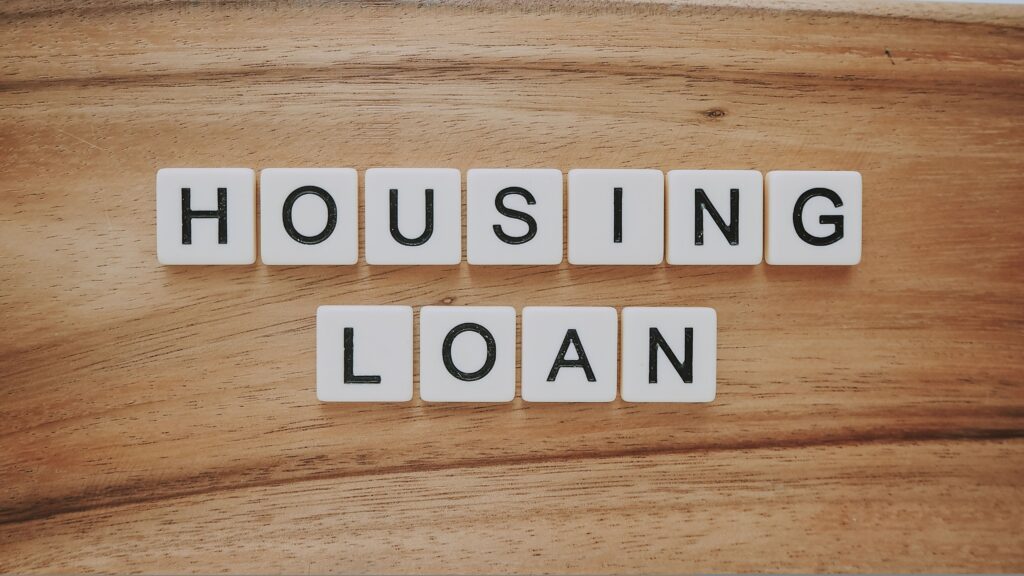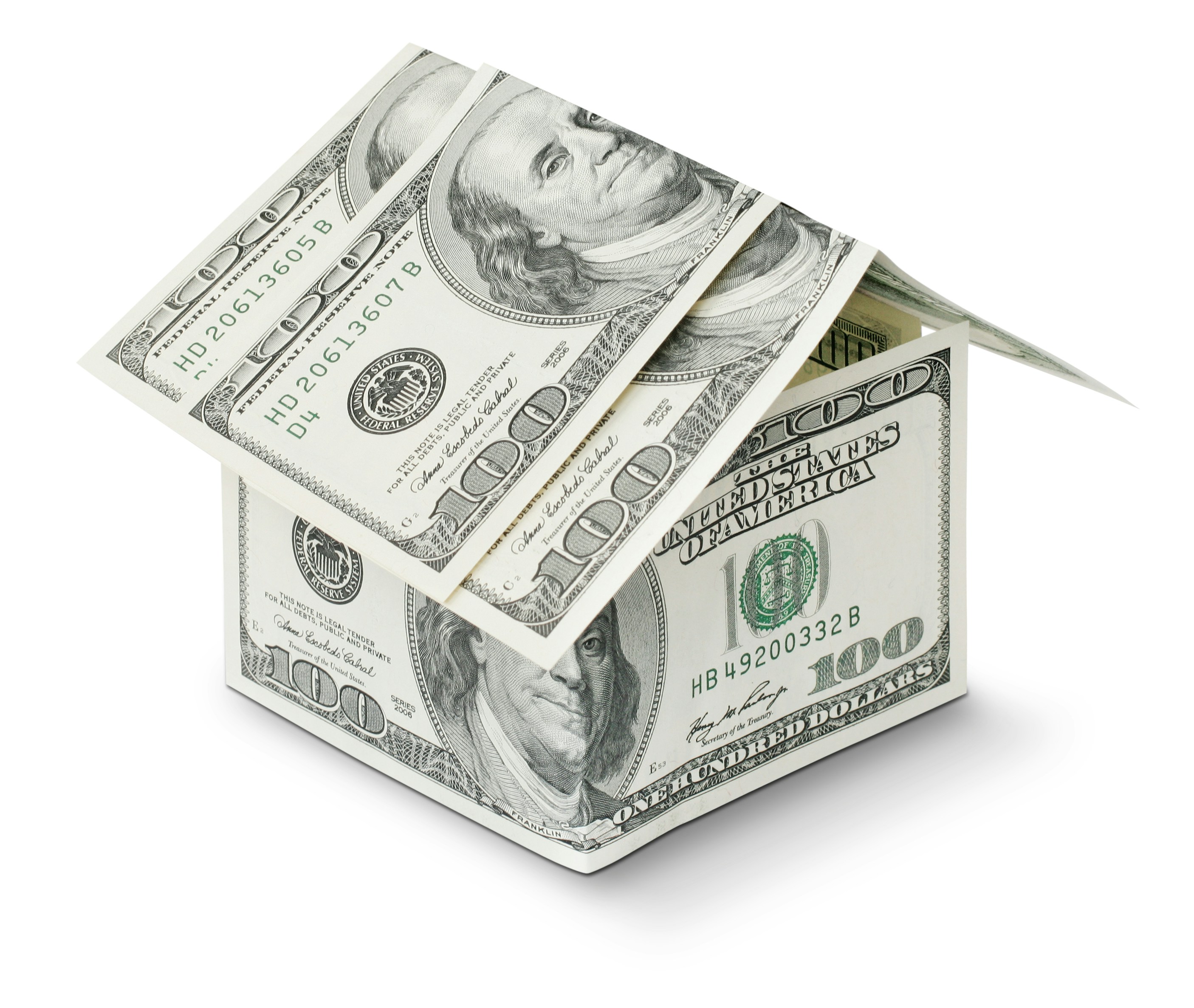
So, you’re a homeowner with a mortgage and you’ve been wondering if it’s possible to pay off your loan early. Well, the good news is, yes, you absolutely can! Paying off your mortgage early can have a multitude of benefits, including saving thousands of dollars in interest payments and the freedom from the burden of monthly mortgage payments. In this article, we’ll explore the various methods and considerations involved in paying off your mortgage loan ahead of schedule, helping you make an informed decision that could potentially change your financial future for the better.

Table of Contents
What is a mortgage loan?
A mortgage loan is a type of loan specifically designed for the purpose of purchasing a home or other real estate property. It is a financial agreement between a lender, such as a bank or a mortgage company, and the borrower. The borrower receives a lump sum of money to purchase the property, and in return, promises to repay the loan over a specified period of time, typically through monthly installments. The property itself serves as collateral for the loan, meaning that if the borrower fails to make the required payments, the lender has the right to repossess the property.
Definition of mortgage loan
A mortgage loan is a legal contract between a borrower and a lender, where the lender provides the funds necessary to purchase a property, and the borrower agrees to repay the loan, with interest, over a set period of time. The term “mortgage” refers to the financial instrument that serves as security for the loan. The borrower makes regular payments, usually on a monthly basis, which include both the principal amount borrowed and the interest charged by the lender. As the borrower makes payments, the amount owed decreases, until the loan is fully paid off.
How does a mortgage loan work?
When you take out a mortgage loan, the lender provides you with the funds needed to purchase a property. The loan is typically repaid over a period of 15 to 30 years, although shorter-term loans are also available. Each month, you make a payment that includes both the principal and the interest. The interest is calculated based on the outstanding loan balance and the interest rate specified in the loan agreement. As you make payments over time, the amount of interest decreases, and a larger portion of each payment goes towards reducing the principal. Gradually, the loan balance decreases until it is fully paid off.
Pros and cons of having a mortgage loan
Like any financial decision, taking out a mortgage loan has its advantages and disadvantages. On the positive side, a mortgage loan allows you to become a homeowner without having to save up a large amount of cash upfront. It provides you with the opportunity to build equity in a property over time and potentially benefit from any appreciation in its value. Additionally, mortgage interest payments may be tax-deductible, providing potential financial benefits.
However, there are also drawbacks to consider. Monthly mortgage payments can be a significant financial burden, especially if they consume a large portion of your income. A mortgage loan is a long-term commitment, and if you find yourself unable to keep up with the payments, you risk losing the property through foreclosure. Additionally, mortgage loans come with interest charges, which can add up to a substantial amount over the life of the loan. It’s important to carefully weigh the pros and cons before deciding to take on a mortgage loan.
Advantages of paying off your mortgage loan early
Saving money on interest
One of the most significant advantages of paying off your mortgage loan early is the potential savings on interest payments. The longer you take to repay your loan, the more interest you’ll end up paying over time. By making extra principal payments or paying off the loan in full before the agreed-upon term, you can significantly reduce the total interest paid. This can result in substantial cost savings and leave you with more money in your pocket in the long run.
Reduced financial burden
Paying off your mortgage loan early can also alleviate the financial burden of monthly mortgage payments. Once the loan is fully paid off, you’ll no longer have to allocate a portion of your income towards these payments. This can free up extra funds that can be directed towards other financial goals, such as saving for retirement, paying for education, or investing in other assets. The reduced financial burden can provide a sense of relief and offer more flexibility in managing your personal finances.
Peace of mind and security
Another advantage of paying off your mortgage loan early is the peace of mind and security it can provide. Owning your home outright eliminates the risk of foreclosure. You will no longer have to worry about unexpected changes in interest rates, as your mortgage payments will no longer be tied to a loan agreement. By removing this financial obligation, you gain a sense of stability and can enjoy the security of having a fully-owned property.
Disadvantages of paying off your mortgage loan early
Potential loss of tax benefits
One of the potential downsides of paying off your mortgage loan early is the potential loss of tax benefits. Mortgage interest payments are generally tax-deductible, meaning that you can deduct the interest portion of your mortgage payments from your taxable income. This can result in significant tax savings, especially for homeowners in higher tax brackets. However, once you pay off your mortgage, you will no longer have the ability to claim this deduction, which could result in an increase in your tax liability.
Opportunity cost of using funds
Another consideration when deciding to pay off your mortgage loan early is the opportunity cost of using the funds. If you have extra money available, paying off your loan can provide peace of mind and financial security. However, it’s important to evaluate other potential uses for the money. For example, if you have high-interest debt, such as credit card or personal loan debt, it may be more financially advantageous to use the funds to pay off these debts first, as they typically carry higher interest rates. It’s important to assess your overall financial situation and consider the potential returns on different investment or debt repayment options.
Risk of prepayment penalties
Some mortgage loans come with prepayment penalties, which are fees imposed by the lender if you pay off your loan early. These penalties are designed to compensate the lender for potential loss of interest income if you pay off the loan before the agreed-upon term. Prepayment penalties can vary in amount and duration and may be a percentage of the outstanding loan balance or a certain number of months’ worth of interest payments. Before deciding to pay off your mortgage loan early, it is important to review your loan terms and determine if any prepayment penalties apply.
Factors to consider before paying off your mortgage loan early
Current interest rate
The current interest rate on your mortgage is an important factor to consider when deciding whether to pay off your loan early. If you have a relatively low-interest rate, it may be more advantageous to invest your extra funds in higher-yield assets, such as stocks or bonds, rather than paying off your mortgage. By comparing the potential returns on investment with the cost of borrowing, you can make an informed decision that maximizes your financial benefit.
Your financial situation
Your overall financial situation is another critical factor to consider before paying off your mortgage loan early. Assess your current income, expenses, and any other outstanding debts or financial obligations. Consider your short-term and long-term financial goals and how paying off your mortgage fits into those goals. It’s important to ensure that paying off your mortgage early does not leave you financially vulnerable or hinder your ability to meet other financial obligations.
Other debt obligations
Before making the decision to pay off your mortgage loan early, it’s essential to evaluate any other debt obligations you may have. If you have higher-interest debts, such as credit card debt or personal loans, it may be more financially advantageous to allocate your extra funds towards paying off these debts first. By focusing on higher-interest debt, you can potentially save more money in interest payments compared to paying off a relatively low-interest mortgage loan.

Methods to pay off your mortgage loan early
Making extra principal payments
One method to pay off your mortgage loan early is by making extra principal payments. This involves making additional payments towards the principal balance of your loan in addition to your regular monthly payments. By reducing the principal faster, you can save on interest charges and pay off your loan sooner. This method can be particularly effective if you have extra funds available or receive windfalls, such as a tax refund or a bonus at work.
Bi-weekly payments
Another strategy to consider is making bi-weekly payments instead of the traditional monthly payments. With this method, you make half of your monthly payment every two weeks. Since there are 52 weeks in a year, this results in 26 half payments, or the equivalent of 13 full payments. The extra payment each year can help reduce the total interest paid over the life of the loan and shorten the loan term. It’s important to check with your lender to ensure that they accept bi-weekly payments and understand how they will be applied to your mortgage.
Refinancing your mortgage
Refinancing your mortgage is another option to consider when looking to pay off your loan early. Refinancing involves obtaining a new loan with more favorable terms to replace your existing mortgage. By refinancing to a lower interest rate or a shorter loan term, you can potentially save on interest charges and pay off your mortgage sooner. It’s important to carefully evaluate the costs associated with refinancing, such as closing costs and potential prepayment penalties, to ensure that the savings outweigh the expenses.
Benefits of making extra principal payments
Reduced loan term
By making extra principal payments on your mortgage loan, you can significantly reduce the loan term. Every time you make an additional payment towards the principal, the loan balance decreases. As the principal decreases, the interest charged on the remaining balance also decreases, resulting in faster overall loan repayment. By consistently making extra principal payments, you can potentially shave years off the term of your mortgage.
Lower interest payments
Another benefit of making extra principal payments is the potential for lower interest payments. As you reduce the principal balance faster, less interest is charged on the remaining balance. Over time, this can result in substantial interest savings. By making extra payments towards the principal, you not only decrease the total amount of interest paid over the life of the loan but also potentially reduce the monthly interest portion of your mortgage payments.
Improved credit score
Consistently making extra principal payments on your mortgage loan can also positively impact your credit score. Paying off debt in a responsible and timely manner is a positive credit behavior that is taken into consideration when determining your creditworthiness. By reducing your outstanding debt and demonstrating a history of responsible payment behavior, you can improve your credit score over time. A higher credit score can have long-term benefits, such as better interest rates on future loans and improved access to credit.
Impact of bi-weekly payments on mortgage loan
Shorter loan term
One of the main impacts of making bi-weekly payments on a mortgage loan is a shorter loan term. By making half of your monthly payment every two weeks, you effectively make 13 full payments in a year instead of the usual 12. This extra payment reduces the outstanding principal faster and can help you pay off your loan sooner. The shorter loan term can provide financial freedom and allow you to own your home outright earlier than originally anticipated.
Reduced interest payments
Bi-weekly payments can also result in reduced interest payments over the life of the loan. As you make more frequent payments, the total interest charged on the loan decreases. By making one extra payment each year, you effectively reduce the amount of interest that accrues on the outstanding principal balance. The reduced interest payments can save you money and provide a long-term financial advantage.
Increased discipline in budgeting
Another impact of bi-weekly payments is increased discipline in budgeting. With bi-weekly payments, you align your mortgage payments with your paycheck schedule, making it easier to budget for your monthly expenses. By breaking down your mortgage payment into smaller, more manageable amounts, you can better plan and allocate your financial resources. The discipline required to make bi-weekly payments can have a positive impact on your overall financial discipline and help you manage your money more effectively.
Understanding mortgage refinancing
What is mortgage refinancing?
Mortgage refinancing refers to the process of replacing an existing mortgage with a new loan that has more favorable terms. It involves paying off your current loan and obtaining a new loan with different interest rates, loan terms, or both. Refinancing can be done with the same lender or with a different lender. The primary goal of refinancing is to save money on interest charges, reduce monthly mortgage payments, or pay off the loan faster by obtaining better loan terms.
When should you consider refinancing?
There are several situations in which it may be beneficial to consider refinancing your mortgage. One common scenario is when interest rates have significantly decreased since you initially obtained your mortgage. Refinancing to a lower interest rate can result in substantial interest savings and potentially lower monthly mortgage payments. Additionally, if you are looking to shorten the loan term, refinancing to a shorter loan term can help you pay off your mortgage sooner.
Another situation in which refinancing may be advantageous is if your credit score has significantly improved since you obtained the initial mortgage. A higher credit score can help you qualify for better interest rates and loan terms, potentially resulting in savings. Refinancing can also be considered if you want to tap into your home’s equity, such as for home renovations or other financial needs. By refinancing, you can access the equity in your home and use it for other purposes.
Potential costs and savings
While refinancing can offer potential cost savings, it’s important to consider the associated costs as well. Refinancing typically incurs closing costs, which can include appraisal fees, title search fees, attorney fees, and loan origination fees, among others. These costs can add up, and it’s important to weigh them against the potential savings from refinancing. Additionally, if your current mortgage has a prepayment penalty, you should factor in the cost of the penalty when considering refinancing.
It’s essential to analyze the potential savings from refinancing and compare them to the costs involved. Consider the length of time you plan to stay in the property and whether the amount saved on interest payments justifies the closing costs. You can use online calculators or consult with a mortgage lender to determine if refinancing is a financially viable option for you.

Alternatives to paying off your mortgage loan early
Investing in higher-yield assets
If you have extra funds available, another alternative to paying off your mortgage loan early is to invest in higher-yield assets. Instead of allocating your resources towards mortgage repayment, you can consider investing in stocks, bonds, real estate, or other investment opportunities that have the potential for higher returns. By investing wisely, you can potentially generate more wealth over time than the amount you would save on interest payments by paying off your mortgage early. However, it’s important to carefully evaluate the risks and potential returns of any investment before committing your money.
Contributing to retirement accounts
Another alternative to paying off your mortgage loan early is to contribute to retirement accounts. If you’re already maxing out your retirement contributions or have sufficient retirement savings, this may not be applicable. However, if you have extra funds available and are looking to build your retirement nest egg, contributing to tax-advantaged retirement accounts, such as a 401(k) or an individual retirement account (IRA), can provide significant long-term benefits. These accounts offer tax advantages, including potential tax deductions or tax-free growth, which can contribute to your overall financial well-being in retirement.
Paying down higher-interest debt
Paying down higher-interest debt is another viable alternative to paying off your mortgage loan early. If you have credit card debt, personal loans, or other high-interest loans, focusing on paying off those debts first can result in more significant interest savings compared to paying off a relatively low-interest mortgage loan. By eliminating high-interest debt, you can reduce your overall debt burden and potentially improve your credit score. This can have long-lasting financial benefits and put you in a stronger financial position for the future.
Seeking professional advice for paying off your mortgage loan early
Consulting a financial advisor
When considering the best approach for paying off your mortgage loan early, it can be beneficial to seek advice from a financial advisor. A financial advisor can assess your overall financial situation, help you understand the implications of paying off your mortgage early, and explore alternative strategies that align with your financial goals. They can provide personalized guidance based on your unique circumstances and help you make an informed decision that maximizes your financial well-being.
Talking to your mortgage lender
Engaging in a conversation with your mortgage lender is another important step when exploring the option of paying off your mortgage loan early. Discussing your intentions with your lender can help you better understand any potential prepayment penalties, clarify the process for making extra principal payments, or explore other alternatives that may be available to you. Your mortgage lender can provide valuable insight and guidance specific to your loan terms, ensuring that you have a complete understanding of the options and implications.
Considering legal and tax implications
Finally, it’s crucial to consider the legal and tax implications of paying off your mortgage loan early. Consulting with a lawyer or tax advisor can help you navigate any potential legal or tax considerations associated with paying off your mortgage. They can provide guidance on topics such as potential tax consequences, how paying off your mortgage affects your estate plan, or any potential legal restrictions or implications. Understanding the legal and tax aspects can help you make a well-informed decision and avoid any unforeseen consequences.
In conclusion, the decision to pay off your mortgage loan early is a personal one that depends on various factors specific to your financial situation. While there are advantages to paying off your mortgage early, such as saving money on interest and reducing financial burden, there are also potential disadvantages to consider, such as loss of tax benefits and prepayment penalties. It’s important to carefully evaluate your financial goals, current interest rate, and other debt obligations before deciding to pay off your mortgage loan early. Exploring alternative strategies, such as making extra principal payments, bi-weekly payments, or refinancing, can also provide options to accelerate your mortgage payoff. Seeking professional advice can help you make an informed decision that aligns with your financial objectives and ensures a secure financial future.









